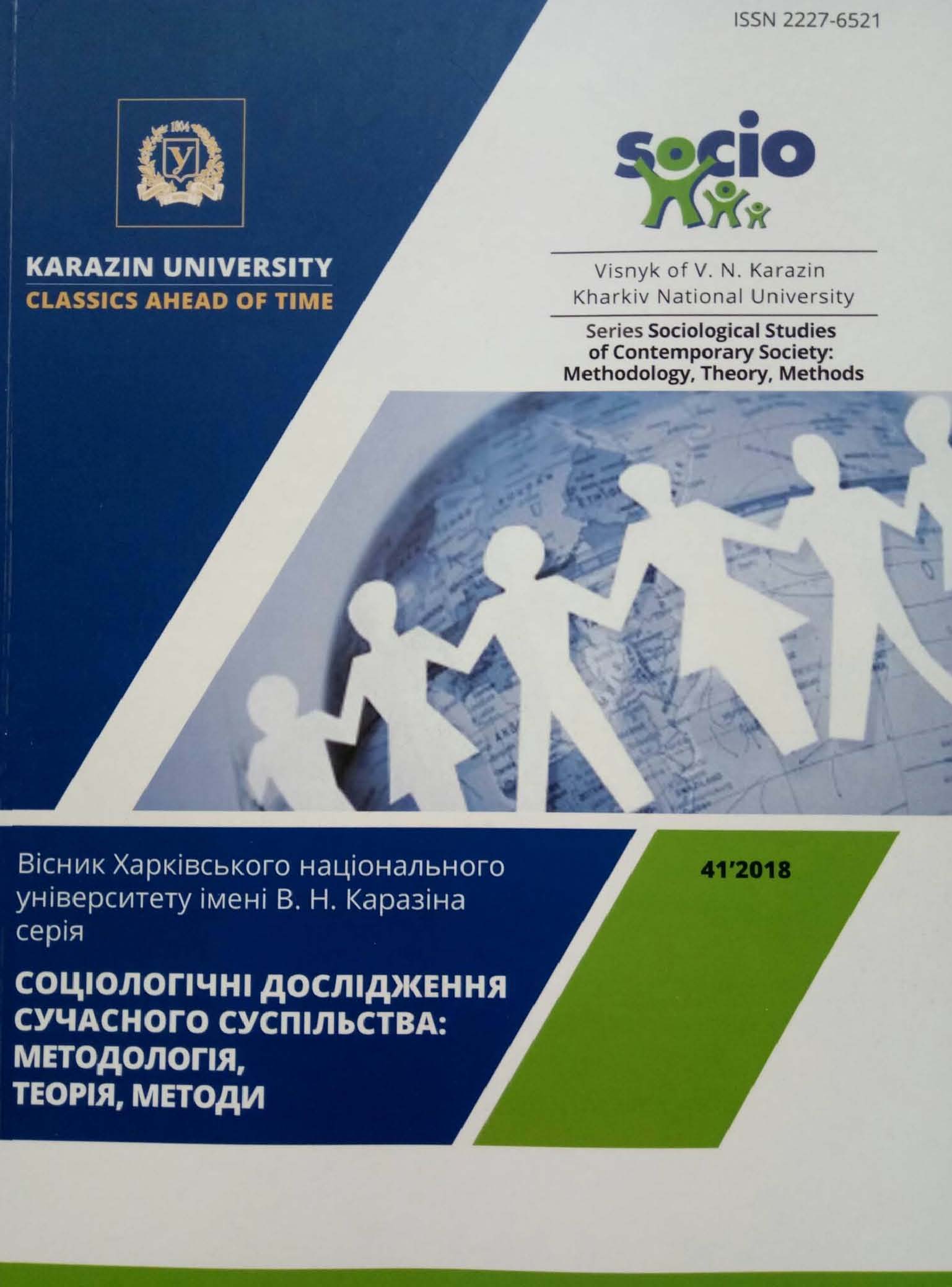The Main Forms of Academic Cheating in Educational Practices of Ukrainian Students
Abstract
The article is devoted to appearance causes and prevalence level analysis of a "crib" as a form of academic dishonesty, the degree and peculiarities of its distribution in the Ukrainian higher education. The phenomenon of academic culture of students as a multicomponent phenomenon is described, which contains various types of formal and informal practices, educational and scientific activities are the major of them. The understanding of the academic culture of the students as an indicator of the state of the higher education system of Ukraine is substantiated. It allows to analyze the educational process in the general context of academic integrity (decency), that is a central element and a peculiar foundation for the academic culture and all its subjects. The historical experience of student use some forms of academic cheating is described. The impact of academic dishonesty on the quality, efficiency, and competitiveness of the entire education system is analyzed. The causes of widespreading the practice of cheating and using of cribs are described according to sociological researches "Academic Culture of Ukrainian Students: The Main Factors of Formation and Development", "Ukrainian Higher Education Reforms in the Assessments of the Participants of the Educational Process" and the All-Ukrainian Monitoring Survey "Ukrainian Teachers and the Learning Environment (TALIS)". It is determined that the origins of the practice of academic cheating originate in secondary school. Despite the fact that writing-off is perceived by all subjects of the educational process as a deviation from the norms of academic culture, but in the Ukrainian educational space, it is customary everyday practice and one of the components of learning. It is concluded that determining the factors that influence the positive attitude of students towards writing-off, will allow us to understand ways to overcome this problem and will provide an opportunity to identify productive quality sanction measures against violators of academic integrity. The most important, it will change the attitude of students and all subjects of academic culture to the violation of the norms of academic integrity.
Downloads
References
McCabe D. L., Trevino L. K., Butterfield K. D. (2001) Cheating in Academic Institutions: A Decade of Research. ETHICS & BEHAVIOR, 11(3), Lawrence Erlbaum Associates, Inc. – Р.219–232.
Астахова В.И (2013) Академическая культура как фундамент формирования современного специалиста. Актуальні проблеми розвитку освіти. Вчені записки ХГУ «НУА». Харків. с. 21-39.
Бакиров В.С. (2012) Университеты «третьей волны»: социокультурная миссия.
«Universitates». Наука и просвещение. Харків. №1. – С. 22-30.
Головаха Є.І. (2017) Суспільство має готуватися до позитивних змін. Проект сприяння академічній доброчесності в Україні SAIUP. URL: https://saiup.org.ua/novyny/yevgen-golovaha-suspilstvo-maye-gotuvatysya-pozytyvnyh-zmin/
Закон Про освіту № 2145-VIII від 05.09.2017р. [Текст] : офіційний веб-портал Верховної Ради України. URL: https://zakon.rada.gov.ua/laws/show/2145-19
Калиновський Ю.Ю. (2012) Академічна чесність як чинник правового виховання студентської молоді. Гілея: науковий вісник : зб. наук. пр. Київ. Вип. 63(№8). с. 477–482.
Ковальчук О.С., Потапюк Л.М. (2017) Забезпечення академічної чесності у вищих навчальних закладах: міжнародний досвід вісник університету імені Альфреда Нобеля. Серія «Педагогіка і психологія». Педагогічні науки. № 1 (13)
Латова Н.С., Латов Ю.В. (2007) Обман в учебном процессе (Опыт шпаргалкологии). Общественные науки и современность. Наука. № 1. с. 31-46
Пак І.В. (2017) Академічна культура: деякі аспекти соціологічної інтерпретації. Вісник Харківського національного університету імені В. Н. Каразіна. Серія «Соціологічні дослідження сучасного суспільства: методологія, теорія, методи». Випуск 39. с. 323-327.
Проект сприяння академічній доброчесності в Україні. (Strengthening Academic Integrity in Ukraine Project) (2018) URL: https://saiup.org.ua/
Прохоров А. В. (2010) Соотношение корпоративной и академической культур современном университете. Вестн. Тамбовского гос.ун-та. Вып. 10 (9). с. 179-184.
Ромакін В.В. (2010) Мотивації, переконання та поведінка українських і американських студентів бакалаврату щодо норм академічної культури. Наукові праці Чорноморського державного університету імені Петра Могили. Педагогіка. Вип. 123. Т. 136. с. 34-41.
Стеченко О. В. (2016) Проблема академічної чесності в навчальному процесі та науці: досвід Національного медичного університету імені О. О. Богомольця. №3. С. 93-98. URL: https://ojs.tdmu.edu.ua/index.php/med_osvita/article/download/6921/pdf
Хоружий Г.Ф. (2012) Академічна культура: цінності та принципи вищої освіти. Тернопіль: Навчальна книга. Богдан. 320 с.
Цокур О.С. (2009) «Кодекс честі» в системі вищої освіти США. Вісник Черкаського національного університету імені Богдана Хмельницького. Серія «Педагогічні науки». Черкаси. Вип. 150. С. 57–62.
Фініков Т.В. (2016) Академічна доброчесність: глобальний контекст та національна потреба. Академічна чесність як основа сталого розвитку університету. Київ, С. 9-36. URL: http://www.edupolicy.org.ua/_dx/assets/images/Kniga160514_web.pdf
Яновська С., Туренко Р., Шаповал Ю. (2017) Psychological features of seniors with subjectively different levels of academic integrity. Вісник Харківського національного університету імені В. Н. Каразіна. Серія «Психологія», (61), с. 33-38.





